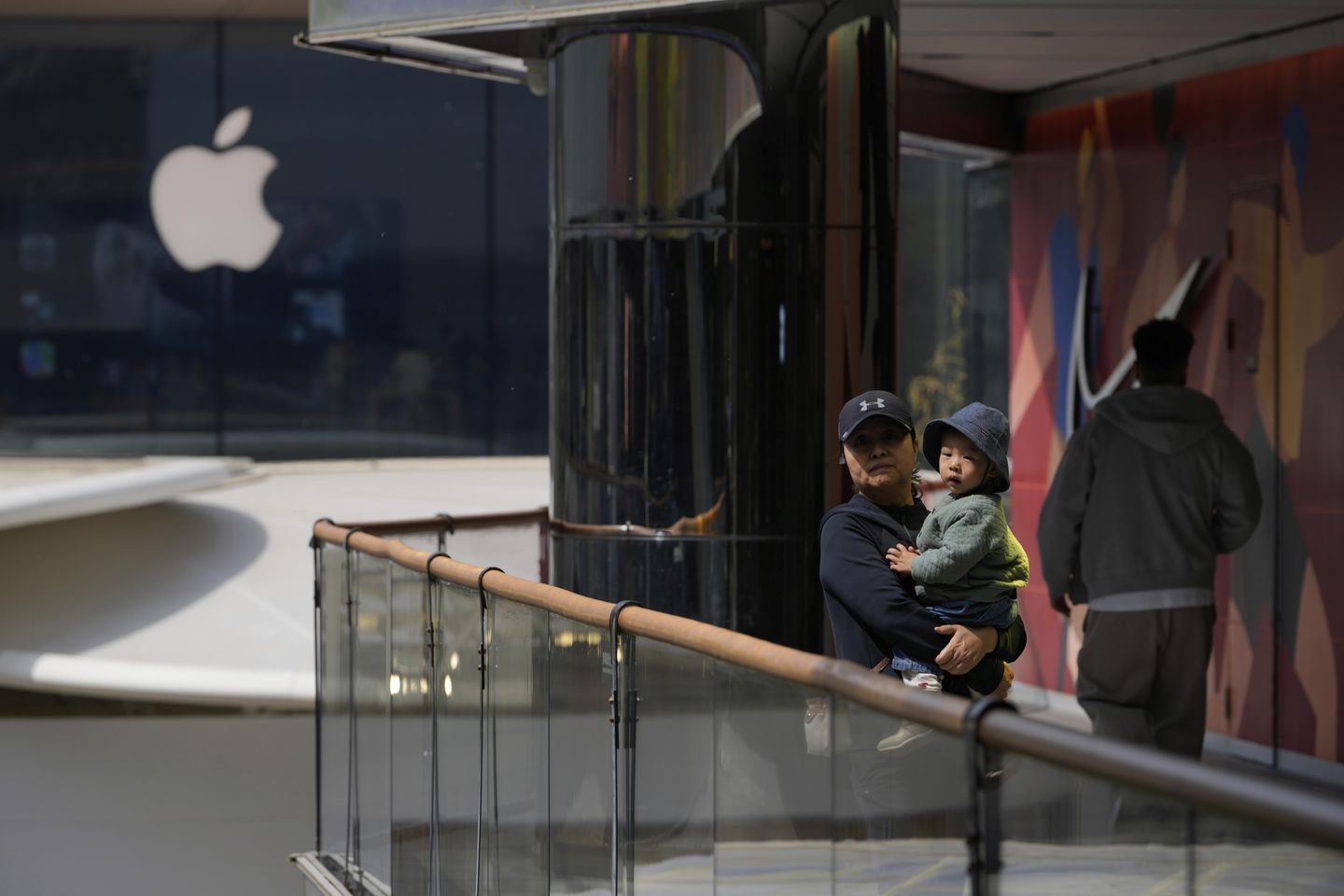
China is slapping a 34% tariff on goods it imports from the U.S. in direct retaliation for President Trump’s sweeping trade crackdown.
Mr. Trump put a 34% reciprocal tariff on Chinese goods as part of his global tariff plan, effectively raising the rate on China to 54% when combined with earlier tariffs of 20%.
“The U.S. practice is inconsistent with international trade rules, seriously undermines China’s legitimate rights and interests, and is a typical unilateral bullying practice that not only undermines the interests of the United States itself, but also endangers global economic development and the stability of the production and supply chain,” the finance ministry in Beijing said.
Chinese officials said goods that leave the port by April 10 and are imported by May 13 will not be subject to the additional tariffs.
Wall Street reacted poorly to the news and overall trade picture on Friday. The Dow Jones Industrial Average was down about 1,000 points at opening, and the other major indexes were firmly in the red.
China’s decision is an immediate sign of the kind of tit-for-tat nations might engage in as the world responds to Mr. Trump’s trade actions.
SEE ALSO: White House defends tariff plan amid global leaders’ uproar, Wall Street crash
Mr. Trump says the U.S. has been taken advantage of by nations that tap into U.S. spending power, only to shut their markets to American producers.
Some companies have moved their supply chains away from China in recent years, as relations between Washington and Beijing frayed. However, Mr. Trump’s plan imposes heavy levies on alternative countries like Vietnam, which now faces a 46% tariff on its goods.
Tariffs are a tax or duty paid by importers on the goods they bring in from foreign markets. Mr. Trump says tariffs are a great way to force companies to return to America or keep their operations in the U.S., employ American workers and create revenue to fund domestic programs.
Foreign countries don’t pay the tariffs directly to the U.S. Treasury. In many cases, U.S. companies will pay the levies, and they might pass on at least some of the cost to consumers through higher prices.
Wall Street indexes on Thursday suffered their worst day since 2020 as trading partners unpacked the tariffs news with a mix of shock, confusion and indignation.
Mr. Trump says the tariffs will put the U.S. in the “driver’s seat” and force companies to move production to the U.S. or reduce their tariffs on American goods.
SEE ALSO: Trump tariffs to hit autos, iPhones, food and more
Mr. Trump appeared open to negotiation over the tariffs, despite his aides’ assertion that it was a permanent plan to reorder the global trade structure.
“If we would have asked these countries to do us a favor, they would have said no,” Mr. Trump told reporters late Thursday. “Now, they will do anything for us.”
Mr. Trump seemed less flexible early Friday, however, writing on Truth Social in all-caps: “To the many investors coming into the United States and investing massive amounts of money, my policies will never change. This is a great time to get rich, richer than ever before!!!”
Mr. Trump also said, “China played it wrong, they panicked — the one thing they cannot afford to do.”
Beijing urged the U.S. to scrap its tariffs and work with Chinese officials.
“China urges the United States to immediately cancel its unilateral tariff measures and resolve trade differences through consultation in an equal, respectful and mutually beneficial manner,” the finance ministry said.

















